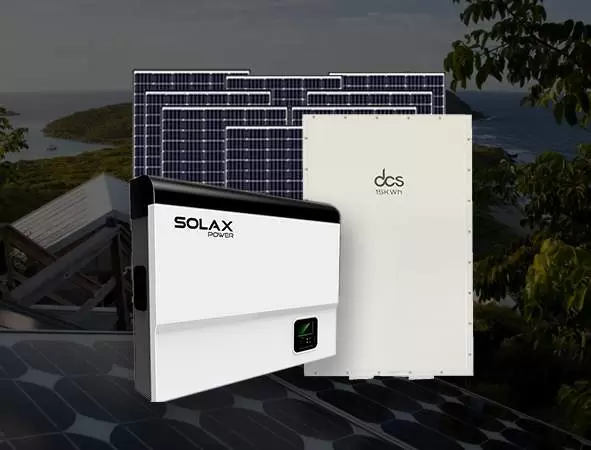As the world moves towards cleaner and more sustainable energy solutions, solar power has emerged as a front-runner. At the heart of every solar energy setup is a vital component that ensures your home or business can efficiently use the energy harnessed from the sun — the inverter. But what exactly makes inverters so crucial to a solar system? Let’s dive into their role, types, and importance.
The Role of an Inverter in a Solar System
Solar panels generate direct current (DC) electricity from sunlight. While DC electricity can be stored in batteries, most household appliances and grid systems run on alternating current (AC). This is where the inverter steps in. It acts as the bridge, converting the DC electricity produced by solar panels into usable AC electricity. Without an inverter, the solar energy you generate would be practically unusable for most daily applications.
Why Inverters Are Indispensable
1. Energy Conversion
The primary function of an inverter is to convert DC electricity into AC electricity, enabling compatibility with standard appliances and the electrical grid. Without this conversion, the energy generated by your solar panels would be wasted.
2. Optimizing Energy Efficiency
Modern inverters are designed to maximize the efficiency of your solar system by managing power output. This ensures you get the most out of your investment, minimizing energy loss during the conversion process.
3. Monitoring and Performance Tracking
Advanced inverters often come equipped with monitoring capabilities. They provide real-time data on energy production, system performance, and potential issues, allowing users to address problems promptly and ensure their system is running at peak efficiency.
4. Grid Compatibility and Synchronization
For grid-tied solar systems, inverters play a critical role in syncing your solar energy with the utility grid. They ensure that the electricity fed back into the grid meets the required standards for voltage and frequency.
5. Safety Features
Inverters also contribute to the overall safety of a solar system. For example, in the event of a power outage, grid-tied inverters shut off automatically to prevent feeding electricity into the grid and endangering repair workers.
Types of Solar Inverters
There are several types of solar inverters available, each designed to cater to specific system needs:
1. String Inverters
These are the most common type of inverters. A single string inverter is connected to multiple solar panels arranged in series. While cost-effective, they may not perform as efficiently in setups with shading issues.
2. Microinverters
Microinverters are installed on each individual solar panel, ensuring optimal performance for every panel. They’re ideal for systems with shading or panels installed at different angles but come at a higher cost.
3. Hybrid Inverters
These inverters work seamlessly with battery storage systems, allowing you to store excess energy for later use. Hybrid inverters are perfect for homes looking to achieve energy independence.
4. Central Inverters
Typically used for large-scale commercial installations, central inverters are powerful units designed to handle significant amounts of electricity. They’re efficient but require careful installation and maintenance.
The Future of Solar Inverters
As technology advances, inverters are becoming smarter and more efficient. Features like AI-driven energy management, enhanced durability, and integration with IoT devices are making them indispensable for modern solar systems. The shift towards hybrid and off-grid systems is also driving innovation in inverter design, ensuring they remain a key player in the renewable energy landscape.
Conclusion
Inverters are the unsung heroes of solar systems, silently working behind the scenes to convert, optimize, and deliver clean energy to your home or business. Their role in ensuring the efficiency, safety, and usability of solar power cannot be overstated. Whether you’re planning a residential installation or a commercial project, investing in the right inverter is essential for maximizing the benefits of solar energy.
By understanding the importance of inverters, you’re one step closer to building a sustainable and efficient solar system that powers your future.
